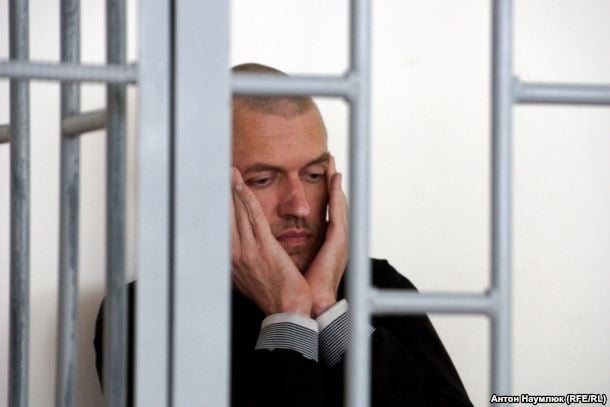
Olha Afanasyeva, an activist and the mother of Hennadiy Afanasyev, another Ukrainian political prisoner, who has been freed from a Russian prison, has confirmed that Klykh's condition has deteriorated sharply, TSN said.
According to her, Klykh, whose mental health has failed after he suffered torture in a Russian prison was in a coma for six days. This happened after he was taken to a psychiatric clinic in Magnitogorsk for treatment and was simply stuffed with medicines.
Read alsoMother of Ukrainian citizen Klykh convicted in Russia says he mentally, physically exhaustedNow the 43-year-old political prisoner's life is at stake, Afanasyeva said.
Meanwhile, his lawyer Ilya Novikov said the information that his client had fallen into a coma was outdated.
According to the lawyer, Klykh went into a coma in early September and his mother came to visit him. "She saw him in a bad condition, but at least he was conscious. His health has deteriorated in recent months, but there is no new information that he has been taken to hospital again. The consuls will visit him," the lawyer said.
As UNIAN reported earlier, in May 2016, the Supreme Court of Chechnya sentenced Ukrainian citizens Klykh and Mykola Karpyuk to 20 and 22.5 years in prison, respectively, for alleged gang-related activities, murder and attempted murder of Russian military servicemen.
According to the Russian investigation, Klykh and Karpyuk during the first Chechen war set up groups in Ukraine to participate in a fighting against the Russian army for independent Chechnya.
Read alsoMothers of Russian, Ukrainian prisoners call on two presidents to grant pardon to sons, stop warKlykh's relatives claim he has never been to Chechnya.
Ukraine's Justice Ministry has sent several requests to the Russian authorities for the extradition of Karpyuk and Klykh.
The Ukrainians were tortured into "confessing" during the so-called "investigation," which had a negative impact on Klykh's mental health. In September, Russian Human Rights Commissioner Tatiana Moskalkova said that Klykh was being confined "by consent" in a psychiatric hospital located in the Russian city of Magnitogorsk.
"We do not have detailed information what medicines had been given to him [Klykh]," Novikov added. "We were informed he had been transferred to that hospital allegedly at his own request. We do not really believe in that. But there is no way to verify the information why he had fallen into that condition. The Russian prison system insists that the information is not to be disclosed to certain individuals, including lawyers and family members."

